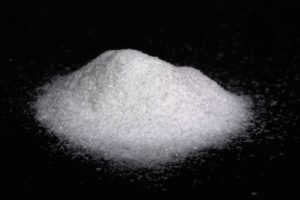 Once again artificial sweeteners are in the news, and not in a good way. New research found that the sugar substitute erythritol, at a concentration typically found in an artificially sweetened beverage, has harmful effects on the small blood vessels of the brain.
Once again artificial sweeteners are in the news, and not in a good way. New research found that the sugar substitute erythritol, at a concentration typically found in an artificially sweetened beverage, has harmful effects on the small blood vessels of the brain.
Erythritol crosses the blood brain barrier and interacts with the brain's cerebrovasculature (the blood vessels in the brain, including the arteries, veins, and capillaries that supply blood and nutrients to the brain tissue). This study focused on the smallest blood vessels (microvascular) in the brain. And yes, found that the amount or erythritol in 1 diet beverage has adverse effects at a cellular level on these blood vessels.
This study was done in a lab setting (and not directly on humans), but research results match up with other studies on erythritol. Other studies already found that erythritol increases the risk of heart attacks, heart disease, strokes, as well as blood clot formation. This study's results give an explanation for why there is a increased risk of these brain vascular (blood vessel) events happening.
Erythritol is found in some beverages advertised as low or zero calorie (e.g., Monster Zero energy drinks, Blue Sky Zero Sugar soda, Red Bull Zero) and in some low calorie foods (e.g., Halo Top low-calorie ice cream). Read ingredient lists on labels!
From Medical Xpress: Major sugar substitute found to impair brain blood vessel cell function, posing potential stroke risk
Erythritol may impair cellular functions essential to maintaining brain blood vessel health, according to researchers at the University of Colorado Boulder. Findings suggest that erythritol increases oxidative stress, disrupts nitric oxide signaling, raises vasoconstrictive peptide production, and diminishes clot-dissolving capacity in human brain microvascular endothelial cells. ...continue reading "The Sugar Substitute Erythritol And the Brain’s Blood Vessels"


 Over the past decade there has been as increasing amount of research suggesting that the herpes virus (cold sores!) is implicated in the development of Alzheimer's disease. (
Over the past decade there has been as increasing amount of research suggesting that the herpes virus (cold sores!) is implicated in the development of Alzheimer's disease. ( Exercise boosts brain function at all ages. This means that for both young and old, it is worth it to get out and engage in physical activity.
Exercise boosts brain function at all ages. This means that for both young and old, it is worth it to get out and engage in physical activity. Some people have unexplainable or mystery illnesses - whether it is unknown what exactly they have, but also how to treat the rare disease. And if somehow a doctor figures out how to treat the disease, then they may not know how to get the word out to other medical professionals. But it turns out there is a way to tell others this valuable information -
Some people have unexplainable or mystery illnesses - whether it is unknown what exactly they have, but also how to treat the rare disease. And if somehow a doctor figures out how to treat the disease, then they may not know how to get the word out to other medical professionals. But it turns out there is a way to tell others this valuable information -  Many people to this day avoid eating nuts because they view them as high calorie and high fat (umm...probably because the medical establishment said that for years). However, studies in the past decade repeatedly found that frequent nut consumption has health benefits.
Many people to this day avoid eating nuts because they view them as high calorie and high fat (umm...probably because the medical establishment said that for years). However, studies in the past decade repeatedly found that frequent nut consumption has health benefits.